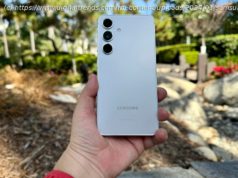AT&T says it will initiate its 5G wireless network in 12 U. S. cities by the end of 2018, with the service going live first in Dallas, Atlanta, and Waco, Texas.
The first deployments of AT&T’s 5G mobile service capabilities are coming to parts of Dallas, Atlanta and Waco, Texas, by the end of 2018 from AT&T, with nine more U. S. cities to be announced in the coming months.
AT&T announced the initial 5G service areas on Feb. 21, as the telecommunications giant begins its build-out of its latest high-speed mobile network.
„After significantly contributing to the first phase of 5G standards, conducting multi-city trials, and literally transforming our network for the future, we’re planning to be the first carrier to deliver standards-based mobile 5G – and do it much sooner than most people thought possible,“ Igal Elbaz, the senior vice president of wireless network architecture and design for AT&T, said in a statement. „Our mobile 5G firsts will put our customers in the middle of it all.“
To support the development of the company’s 5G strategy and network, AT&T is opening a new 5G lab in Austin, Texas, where it will conduct stress tests using mobile 5G network equipment and devices from a range of vendors before the devices are released to customers. This lab is also equipped with an outdoor 5G testbed to evaluate a variety of 5G applications and real-world use cases.
AT&T’s initial mobile 5G deployments will be based on 3GPP (3 rd Generation Partner Project) standards and operate over mmWave spectrum, according to the company. The 3GPP group has been working to create the international standards and specifications for 5G networks and services. AT&T is also using equipment on its LTE network that will later allow for migration to 5G.
In mid-2016, the company conducted 5G field trials with mmWave and tested 5G service with residential customers as well as with small and large businesses, and high-traffic retailers.
Gordon Mansfield, AT&T vice president of radio access network device and design, told eWEEK that the company will continue its nationwide rollout of 5G services in 2019 and beyond, but didn’t have an estimate for when the network will be completed.
„We are on the most aggressive timeline of anybody,“ said Gordon. “The first 3GPP standards only came out in December… and the final standards are set to come out in June. I’m personally very excited for that to happen“ because it will speed up the deployment of 5G technology.
The other major mobile carriers continue to be busy with their 5G plans as well.
In January, T-Mobile announced it was working with Nokia and Intel on tests of commercial 5G services to see how millimeter wave radio signals operating at 28 GHz will behave in an urban setting, how they will interact with LTE systems and how they can be integrated with existing networks. T-Mobile has said it expects to deploy its nation-wide mobile 5G network by 2020.
Verizon began its own commercial 5G trials in mid-2017 in 11 U. S. cities, including Ann Arbor, Mich., Atlanta, Ga.; Bernardsville, N. J., Brockton, Mass., Dallas, Denver, Houston, Sacramento, Calif., Seattle, and Washington, D. C. The trials included up to 500 residential and business customers. Verizon has been conducting initial 5G tests since it began early laboratory work and field trials in the fall of 2016.
Earlier in February, Verizon conducted a successful over-the-air call on a 3GPP-compliant 5G New Radio (NR) system using licensed spectrum. The test on Verizon’s millimeter wave spectrum—using Nokia 5G network technology on a 5G NR prototype device provided by Qualcomm—was conducted to help prepare Verizon’s network for widespread implementation of commercial 5G mobile services for consumers and enterprises.
Sprint, meanwhile, is working to use parts of the 2.5 GHz radio spectrum to launch its first 5G mobile network in the first half of 2019, using the High Performance User Equipment (HPUE) project it began experimenting with in 2017. Sprint is also deploying massive MIMO radios using 2.5 GHz in 2018, which will be software upgradeable to 5G as soon the technology becomes available, according to a Sprint spokeswoman. Sprint is also working with Qualcomm and device manufacturers to develop 5G devices for use with the service provider’s 2.5 GHz spectrum.
5G is expected to offer as much as 50 times the throughput of current 4G LTE and latency that will drop into the single milliseconds. It’s also expected to play a significant role in the rapidly growing Internet of things (IoT) enabling rapid growth of the number of connected devices as well as the data volumes from these devices.






